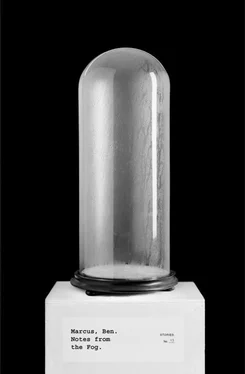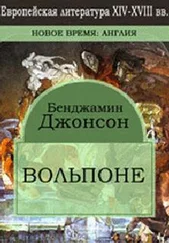—
That year the summerhad a glitch. A flaw in the calendar, we were told. Like a leap year, but worse. The days would flicker out early, and sometimes, after sunset, would strobe back on, due to some sort of unspent sunlight that was trapped in the higher atmosphere. People thought it meant something but it most certainly did not.
A star came out in late August, and it took a low position in the night sky, and then it started to make a soft, terrible noise. It had some people concerned. Not just in my neighborhood, my town, where concern runs high, where people polish their worry like a stone. This came from people who know what to watch out for, what to worry about—they said it wasn’t good. In daylight, in sunshine, a planet should respect our border, I believe. It looked dirty from here. I daresay it had a shit stain across it. Of course this was only a local weather system discoloring the planet. I knew that. Weather, in the end, simply adds a shit stain to a place. Gray sometimes. Sometimes yellow. But still, just a stripe of shit over the people and place. Sometimes the shit is clear and wet. It comes in pellets. I do not know why we call it rain.
The next day the star was gone. We know enough about stars to say that this one was never there in the first place, so it could never leave, and it may be that it’s wrong to even call them stars. Whatever one says, or thinks, about stars is no doubt incorrect, and once you follow this line of reasoning, I mean really follow it as if you’re stalking it home for the kill, well, reality pulls away a little bit. Like a skin, it just comes off.
Soon after that I went looking for work and I fucking found it. An unbearable amount of work, everywhere I searched. Because everything was broken, torn, crushed. There were faults in the soil, the buildings, the air. The people, especially, needed work—their moods, their appearances, the way they walked. But of course so did the streets and roads. So did the trees. Disarray everywhere, flaws of design. Error, human and otherwise. A shattered state of things. Would I be paid if I fixed some of these things? Made them right? Not for me to say, I knew. Nothing really was for me to say.
I would have to learn to ignore all of this unfinished work, or it would disturb me—so much wrong, so much left undone. We shirk our duties when we open our doors, when we leave our homes. We shirk and shirk. We walk down the street and we ignore jobs, swirling around us, needing to be completed. We pretend we don’t see.
—
The job I finally tookrequired so little of me that I wasn’t sure if I was even doing it. It was like getting paid for not dying. I stood and I sat and I walked. I had memories and I had the opposite, when nothing came to me and I listened to music come from the wall—just a piano that sounded like it had been tipped over and kicked to pieces, but was somehow still in tune. The days were driven fast by an engine I could not see. When cars approached, I pressed a button for the bridge, and when they were long gone I pressed that button again. My money began to form a pile and the pile began to glow.
It was October and the roads were already snowy when I finally went to get the kids. The aunt wasn’t even there. The kids were packed and clean and all dressed up and they stood apart from me, because we hadn’t been practicing our single-body power walk through the terrible terrible world. The team had been on hiatus and now we were back together, I told them. I knew that I looked strange and scary, and smelled like someone from the past. I hugged them anyway and whispered a few of the things I’d been saving up to say. In my pocket was the envelope I’d given Gin. We took that twenty dollars and we went out to breakfast. We got eggs and cakes and there was a sweet pudding served in a long bowl that the three of us shared, as if we were the fanciest horses at the most golden of troughs. We dove our spoons into it and we laughed at how good it was. I had a real coffee and I accidentally cried, which no one saw. That was her money I was spending. It would be gone after today. Would she have wanted us to, as I kept trying to tell myself? I am afraid the answer was no, and no, and no, because she didn’t want anything, she wasn’t anything, she had no name and no body and her heart did not beat, and I didn’t even know how to remember her right.
—
I took a sort of girlfriendbefore too long, and I don’t use that expression lightly. I actually took her from another man who was asleep at the wheel, just so out of it—as if he were operating his own body with a broken remote control. You could peel off his face and throw it into the woods. I was forty-eight years old. For some reason I was not dead, even though the late autumn season had that smell. Of failure, of the afterlife.
She had a name, and out of respect for Gin I won’t mention it here. The children met her and called her “sister,” and she never got too close or too far. When it came time to test our parts, I found she fit on me, but we all knew where that could go. She hollered at night, out of nowhere, and sometimes it put me in a terrible crouch. She had her own job, her own life, her own children, and even, somewhere else—a city, a town, a cave, I didn’t know—an old, abandoned husband, who didn’t know where she was. I thought of him sometimes.
The deal was that she would always call ahead, and what that sometimes meant was that I’d hear my name, and not just my name but the names of the kids, sounding loud and pretty and strong way down the street. You may not know what it’s like to hear your name sung out loud, from far away, by someone who has beauty in her throat. Bow your head and imagine it. Sometimes in the morning we’d hear it and we’d go outside and wait in the yard. When she got up to us, out of breath and laughing, she’d always say: I called ahead, did you hear me?
—
I still go down to Foley,the school where I worked. I watch the kids flow in and out. The ones I taught are long gone, now. They are grown, I imagine. Some of them have died, no doubt. Maybe they are buried near Gin. When you’re underground, buried dead like that, distances are different. You are close by to the others. This is understood. You can get to them, and they to you. It’s not like up here, in the holding room called the world, where you have to walk or drive or fly. Where you might have to swim. Where, maybe, you can’t get somewhere else at all, because of mountains, or wars.
At Foley once, I saw Mr. Rubins, walking from his car over to the school. He had his bag and his hat, a newspaper tucked under his arm. He looked the same, not that I had ever really studied him. What impressed me the most was how he walked and waved and smiled, using all the tricks of a real human person. How he clung to the ground and used his body in relation to gravity, as if he weren’t a ghost. He could have floated off, he could have melted down, he could have simply collapsed into a heap of clothing, vacating this world forever, but he held it together, even if it was taking all of his loving energy and soon his chest would explode with the effort. I watched him until he disappeared into the school and the bell rang and everything suddenly went incredibly quiet. I admired his technique. He was a spirit to watch.
—
The children are home.They keep their own secrets. I no longer curate their minds. No one has time. No one has the energy. Isn’t that the world now? Listless, cowering in our homes. Beset by paralyzing indifference. Too tired to eat, and waiting for a hammer to the head? Witness the birds. Their exhaustion. Please. Look at them closely for a change and ignore the ruse of beauty. Who can finally be bothered to still pretend we’re not moments away from some blistering cremation?
Читать дальше











